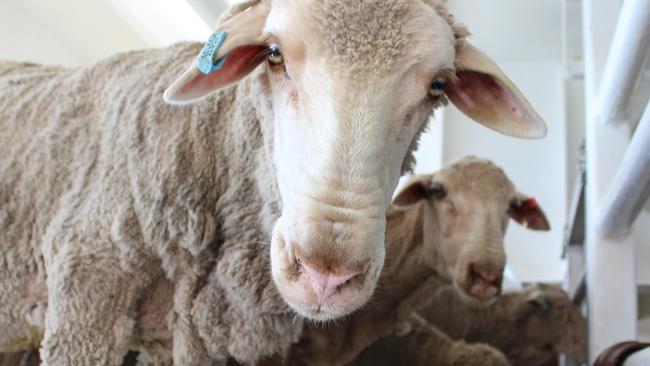Saudi Arabian live exports set to recommence after 10 years
After a decade-long break, Australia has been given the green light to export livestock into a key export market.

AUSTRALIA has been given the green light to export livestock into Saudi Arabia for the first time in about a decade, opening opportunities for sheep and goat producers and boosting Australia’s multi-billion dollar export industry.
The move was welcomed by the Australian Livestock Exporters’ Council, which labelled it an “important step” for the industry.
The federal Department of Agriculture has finalised revised conditions, under the Manual of Importing Country Requirements for sheep and goat exports into Saudi Arabia.
Exporters seeking to export to Saudi Arabia must apply to the department.
ALEC chief executive Mark Harvey-Sutton said securing access to the Saudi Arabian market was “an enormous task for industry”.
“This will not only enable exporters to provide food security to the Saudi people, but will assist sheep and goat producers in having greater global market opportunities to a market we once had a significant share in,” Mr Harvey-Sutton said.
According to the federal Department of Agriculture, exported Australian livestock in 2019-20 was valued at more than $2 billion.
Mr Harvey-Sutton said exports into Saudi Arabia came to a halt when the Exporter Supply Chain Assurance System was implemented in 2011.
“It’s taken quite a number of years, and there’s been a renegotiation of health agreements which has taken place over a number of years,” Mr Harvey-Sutton said. “This shows live sheep exports are growing. Market growth is something we need to always strive for, it offers diversity, competition in the market for producers and exporters, and it’s an important step for the sustainability of the trade.”
Agriculture Minister David Littleproud said the agriculture department was working to ensure the new arrangements met Saudi Arabian requirements, with livestock welfare in mind.
“As with all livestock exports … exporters must hold a valid licence and have arrangements in place to ensure animal health and welfare requirements are met during preparation and transport,” Mr Littleproud said.
GRAZE STUDY TO CUT LOSS
FEEDING sheep lush pasture in the evening could help reduce nitrogen loss from sheep urine, according to a new study.
But industry experts suggest the change in feeding time could better suit intensive management systems, such as dairying.
The study, published by a cohort of researchers including Lincoln University in New Zealand, showed peak urine output in sheep after being fed fresh grass occurred eight hours post-feeding, with the lowest volume before feeding.
University of Melbourne professor of sustainable agriculture Richard Eckard said low wind speeds and cooler temperatures at night resulted in less ammonia being released, with most of the ammonia from urine it lost in the first 12 hours.
Prof Eckard said while there could be practical issues with feeding animals only in the evening, “there may be a case under future climates where this may become part of the strategy to avoid heat stress while eating”.
The study showed nitrogen loss from rumens was greatest when lush pastures were grazed, and proposed sheep should be moved onto lush pastures in the evening to minimise nitrogen loss.
Livestock Logic director and veterinarian Andrew Whale said rotational grazing of sheep was less common in Australia than New Zealand, and when used in Australia sheep were moved every four to seven days.
A change to feeding times may be better suited to dairy where animals are moved “daily or even twice daily”,” Dr Whale said.
“It’s not surprising that 60 per cent of urine is excreted within 12 hours after feeding … fresh green grass is 90 per cent moisture,” he said.
Dr Whale said further research was needed to determine the effect of feeding grain and hay on urination and loss of nitrogen.
MORE


